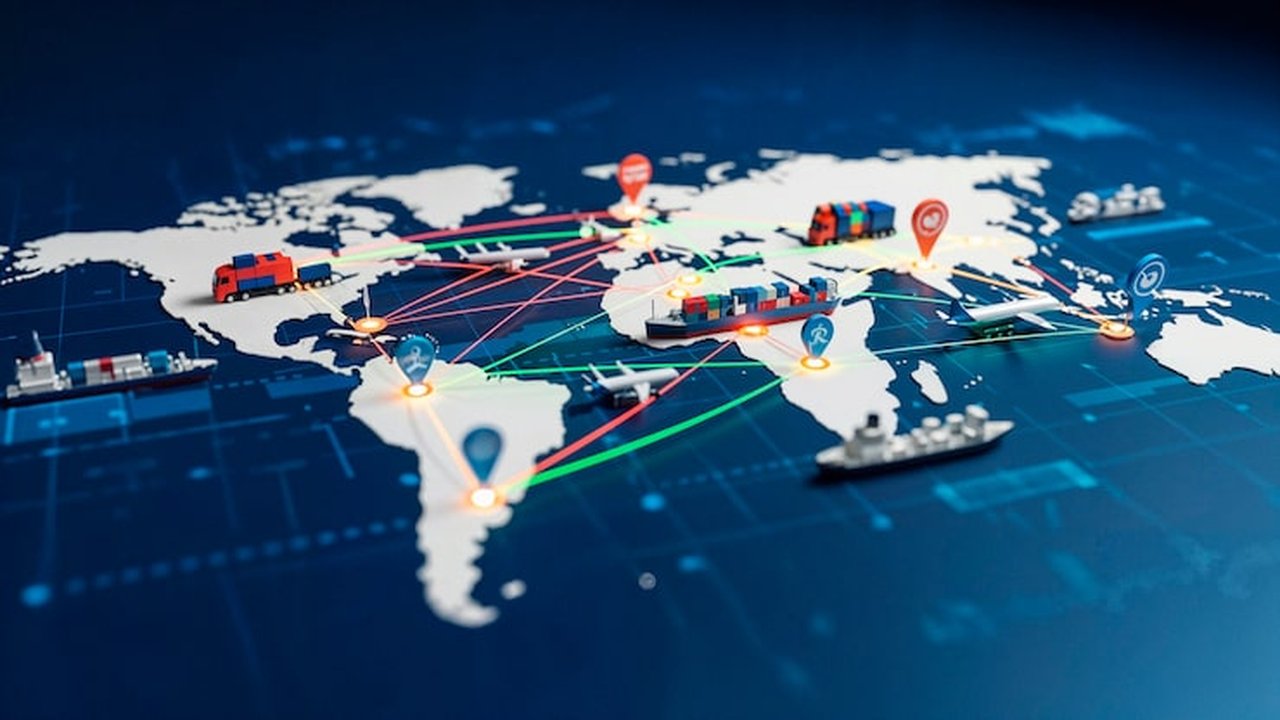 In the dynamic landscape of global trade, the Americas are poised to redefine competitiveness through robust connectivity and innovation. With Latin America's logistics market surpassing $360 billion in 2024, the region's potential for growth is undeniable. In a recent Forbes Business Council column, Morten Johansen, COO of DP World in the Americas, delves into the transformative power of trade corridors in unlocking sustainable growth and cost efficiency. From leveraging technology to fostering public-private partnerships, the article explores how strategic investments in smarter, faster, and more resilient trade routes are shaping the future of trade in the region.
In the dynamic landscape of global trade, the Americas are poised to redefine competitiveness through robust connectivity and innovation. With Latin America's logistics market surpassing $360 billion in 2024, the region's potential for growth is undeniable. In a recent Forbes Business Council column, Morten Johansen, COO of DP World in the Americas, delves into the transformative power of trade corridors in unlocking sustainable growth and cost efficiency. From leveraging technology to fostering public-private partnerships, the article explores how strategic investments in smarter, faster, and more resilient trade routes are shaping the future of trade in the region.
Strengthening Trade Corridors for Sustainable Growth
The focus on building efficient and resilient trade corridors in the Americas is gaining momentum as a strategic approach to fostering sustainable growth and cost competitiveness. As highlighted by Morten Johansen of DP World, the emphasis is not merely on physical infrastructure but on the efficiency gains and cost reductions these corridors can unlock. By leveraging technology such as digital platforms, AI-driven visibility, and blockchain-enabled customs processes, trade routes can be optimized to reduce clearance times significantly. This not only enhances operational efficiency but also leads to substantial cost savings for businesses involved in cross-border trade within the region. Furthermore, the shift towards smarter and faster trade routes aligns with the broader global trend of prioritizing sustainability and transparency in supply chains, which resonates well with the ethos of companies like DP World that advocate for ethical sourcing and environmental responsibility.
Public-Private Partnerships as Catalysts for Change
One key takeaway from Johansen's insights is the critical role of public-private partnerships in scaling the impact of corridor development initiatives. By combining government investment with private-sector efficiency, these collaborations can drive meaningful progress in enhancing trade connectivity and competitiveness. Johansen's emphasis on viewing corridor development as strategic investment rather than philanthropy underscores the long-term value that such partnerships can create. Companies like DP World are actively involved in such collaborations, as evidenced by their projects in Ecuador and the Dominican Republic, which not only aim to future-proof trade infrastructure but also contribute to inclusive regional growth. This approach not only benefits the businesses directly involved but also has broader implications for the economic development and resilience of the entire region.
Embracing Technological Innovation for Trade Optimization
The integration of technology into trade corridor development is a key enabler of efficiency and competitiveness in the logistics sector. By harnessing digital solutions and data-driven insights, businesses can streamline operations, reduce costs, and enhance overall supply chain visibility. DP World, with its focus on sustainability and transparency, is at the forefront of leveraging technology to optimize trade routes and enhance the traceability of sourced goods. The adoption of AI, blockchain, and other cutting-edge technologies not only accelerates the clearance processes but also ensures compliance with ethical and environmental standards. This technological transformation not only benefits individual companies in terms of operational efficiency but also contributes to the larger goal of promoting sustainability and ethical practices across global supply chains.
Driving Economic Growth Through Regional Integration
A significant aspect highlighted by Johansen is the potential for trade corridors to drive economic growth through regional integration efforts. By connecting different markets and facilitating the flow of goods and services, these corridors can unlock new opportunities for businesses while fostering economic development in the surrounding areas. The examples of Mexico's nearshoring boom and Brazil's integration of rail and port systems underscore the transformative impact that well-designed trade routes can have on the economic landscape. Companies like DP World play a pivotal role in catalyzing this growth by investing in infrastructure projects that not only enhance trade connectivity but also contribute to job creation and sustainable development. This focus on regional integration aligns with the broader sustainability goals of promoting inclusive growth and reducing inequalities within and across economies.
Conclusion
In the evolving landscape of global trade, DP World's Morten Johansen sheds light on the pivotal role of sustainable trade corridors in driving economic growth and fostering competitiveness in the Americas. By emphasizing technological innovation, public-private partnerships, and regional integration, the path to smarter, faster, and more resilient trade routes becomes clear. As businesses navigate the complexities of cross-border trade, embracing these strategic investments not only optimizes operations and reduces costs but also paves the way for a more sustainable and transparent supply chain ecosystem. The call to action resonates: to thrive in the future of trade, sustainable growth through ethical sourcing and transparent practices must be at the forefront of strategic considerations.